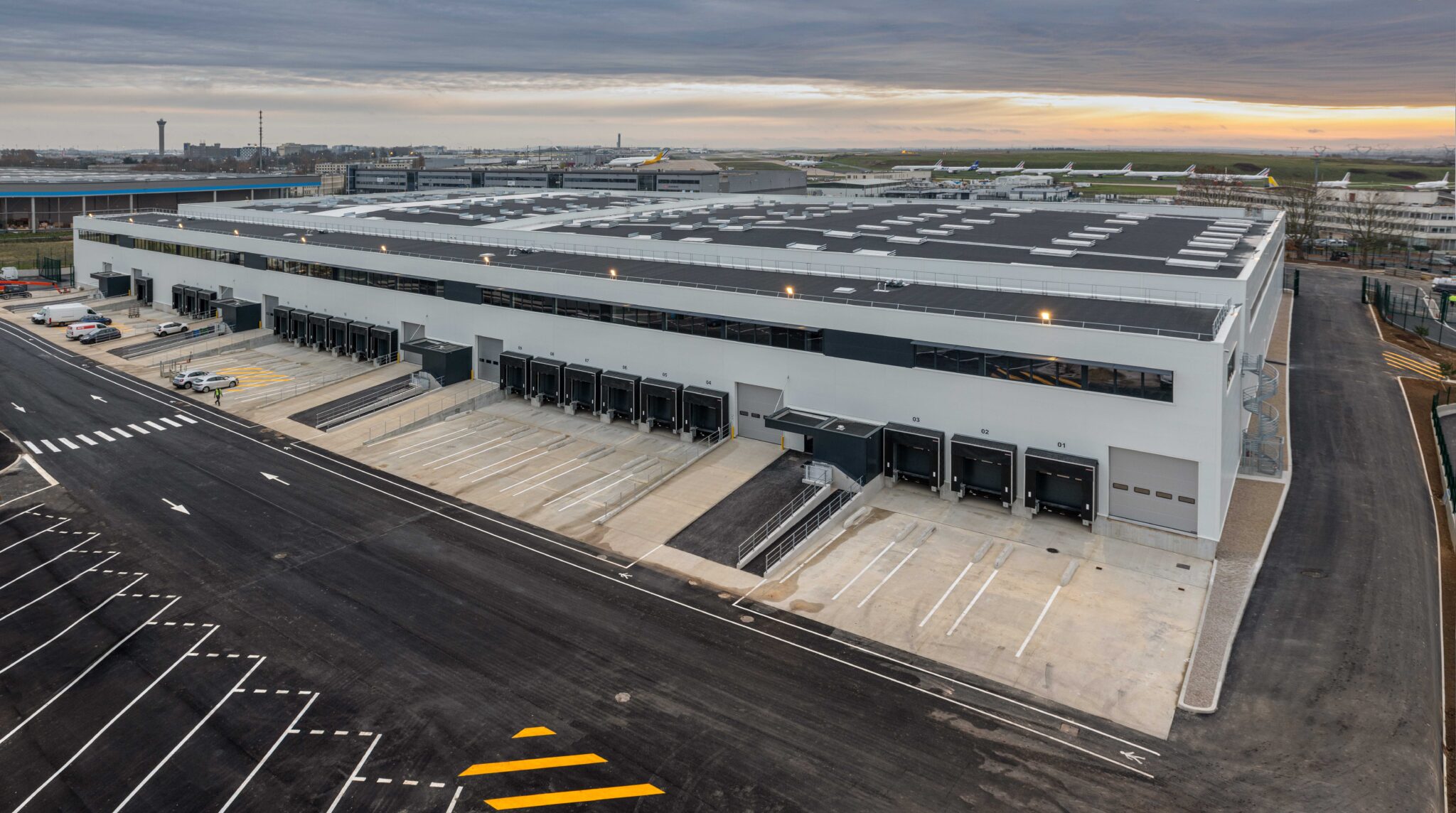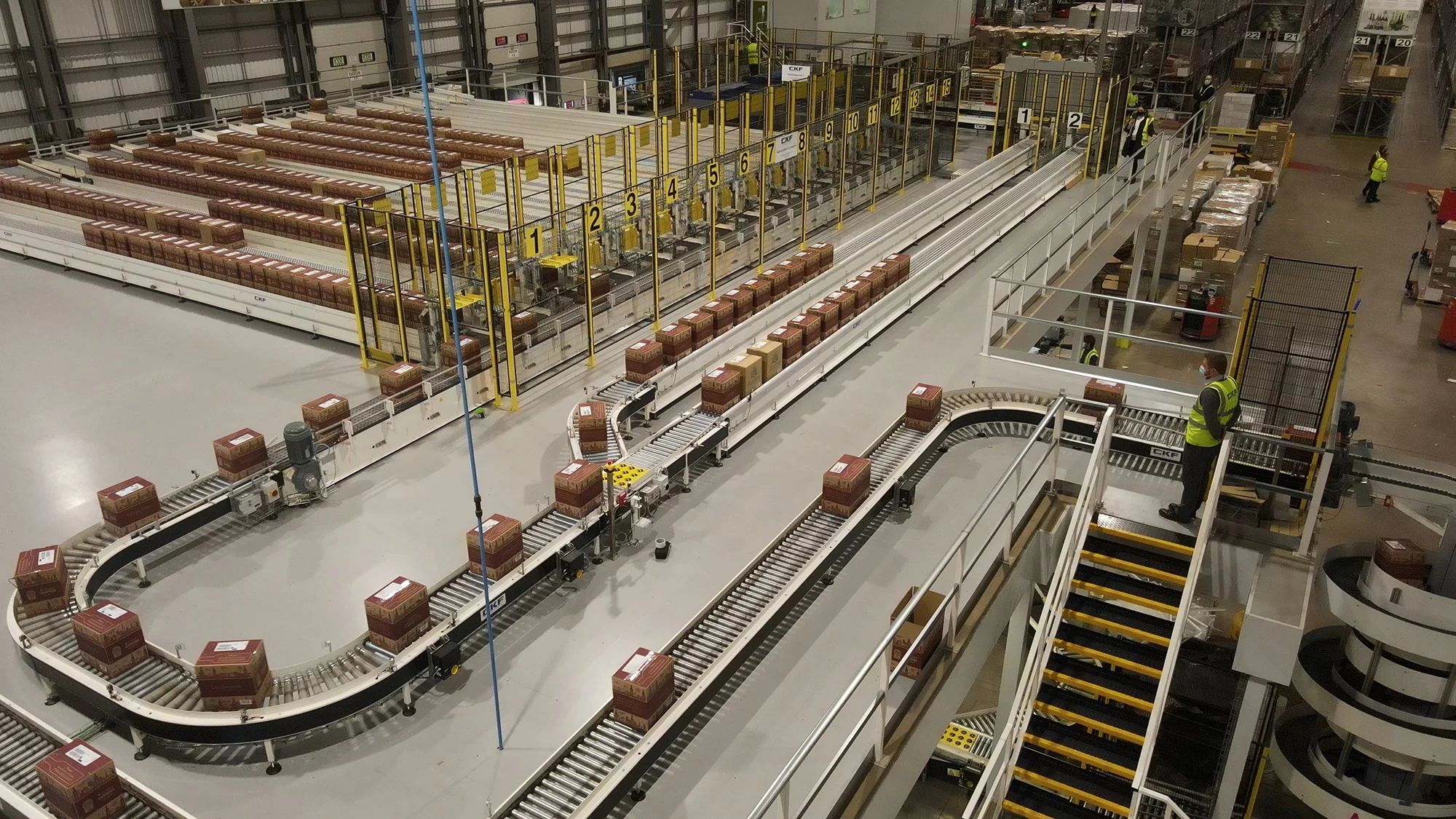Economists predict that the UK economy will show a dramatic recovery from the pandemic – but this could be curtailed by a simple shortage of warehousing space, writes Matt Whittaker, Commercial Director at Bis Henderson Space.
Our clients tell us of a serious market failure, yet, extraordinarily, in the government’s recent White Paper on planning, there was not a single reference to the land and space needs of supply chain and logistics industries.
Even before the pandemic, the UK was significantly ‘under-warehoused’. According to estate agency Savills, a record 50.1 m sq ft of space was taken up in 2020. Some 20 m sq ft of that was new build – half of which was ‘speculative’ and usually snapped up long before completion. Amazon alone took a quarter of the available space, the 3PLs are also active, and, say Knight Frank, another agent, ‘The UK only has 10 months’ worth of warehouse supply available at current growth rates’ – and much less in London, the South East, and the near-urban locations needed to support on-line last mile.
Rental rates are soaring and even the 40 million sq ft that Knight Frank expect to see completed in 2021 may not restore a functioning market. Demand for space is only going to increase.
Every £1 billion extra spent through e-commerce generates need for 750,000 sq ft of extra space, and ecommerce is just one competing need for warehousing. In both retail and manufacturing we see businesses abandoning the dominant lean, Just-in-Time, low inventory, procurement-led supply chain model. With increasing risk from events such as, Covid, Brexit, trade friction with China, flooded Taiwanese chip-makers, and the Suez Canal blockage, businesses are facing greater uncertainty and are looking to build resilience into their supply chains. And that means holding more inventory which in turn puts further pressure on available warehouse space.
Flexibility is a sound bulwark to uncertainty. So most businesses, our clients included, don’t want or need vast new empty sheds. They need operational, workable space that they can move in to and use from day one, to accommodate increased inventories of raw material, work in progress, and finished goods but also for kitting, picking, packing, returns processing and a host of other tasks. They need services, and at least a minimum of fit-out, already installed. Their current requirements are strictly tactical – they need to be able to move out again as strategies become firmer.
But most new development is aimed at flagship brands and 3PLs making long-term commitments to big sheds where long leases and multi-million investments are needed to equip a warehousing facility. A 100,000 sq ft shed counts as ‘small’ even though that is 20% larger than the playing surface at Wembley. New spaces are drip-fed from the developers’ land banks, keeping rentals high and ensuring further yield compression.
The smaller and mid-size businesses we meet, the heart of the UK economy, are manufacturers and retailers, not property companies. Their balance sheets can’t support such long-term liabilities. And most new build sheds are offered as just that – a bare shed. The tenant has to fit out and equip the facility, from automation to basic services. It could be six or nine months before the business can ship its goods in, perhaps longer. Businesses don’t have that money, or that time.
Timescales are critical. Savills say that last year 12% of transactions were for ‘short’ leases – but we know this greatly understates the need for high quality, yet flexible, warehousing. To developers, a five-year lease is ‘short’, but many companies are pushed to see clearly for five months out. They need short-term provision, to buy breathing space while they develop their longer-term strategies, or to keep the business operating while new solutions are applied to existing warehousing.
They need to move in quickly and, when appropriate, move on. They need something akin to space-as-a-service, not an investment. Most property companies are reluctant to have that conversation. As such, businesses are turning to well-connected warehouse operational space brokers like ourselves to develop a solution that meets their immediate and quite often longer-term needs whilst avoiding an expensive long-term lease agreement.
Over many years we’ve developed a wide network of warehouse suppliers – we introduce businesses with a need for additional capacity to providers who have spare operational space available on a flexible basis. Often facilitated deals are as short as 3-9 months, (although in practice these can roll over for several years) but any term of less than three years is better than can be obtained in the current investor-driven market.
Such premises will usually have at least a basic, perhaps even a quite sophisticated, fit-out, suitable for immediate occupancy for little additional capital outlay. Shared labour and services can sometimes be an option. A further advantage for many companies is that as a short-term service agreement there is no five-year liability hanging over the balance sheet.
For any company considering how to rebuild their supply chain to combine flexibility and resilience, this approach could be a game changer. Any business that needs to take care of cash as they trade out of the present crisis, that needs a short-term tactical solution while working out the long-term strategy, or that needs to trial new markets or business models without overstretching, can find a viable and well-proven alternative to a constrained, rigid and uncompromising property market through working with a well networked broker. Look no further.











